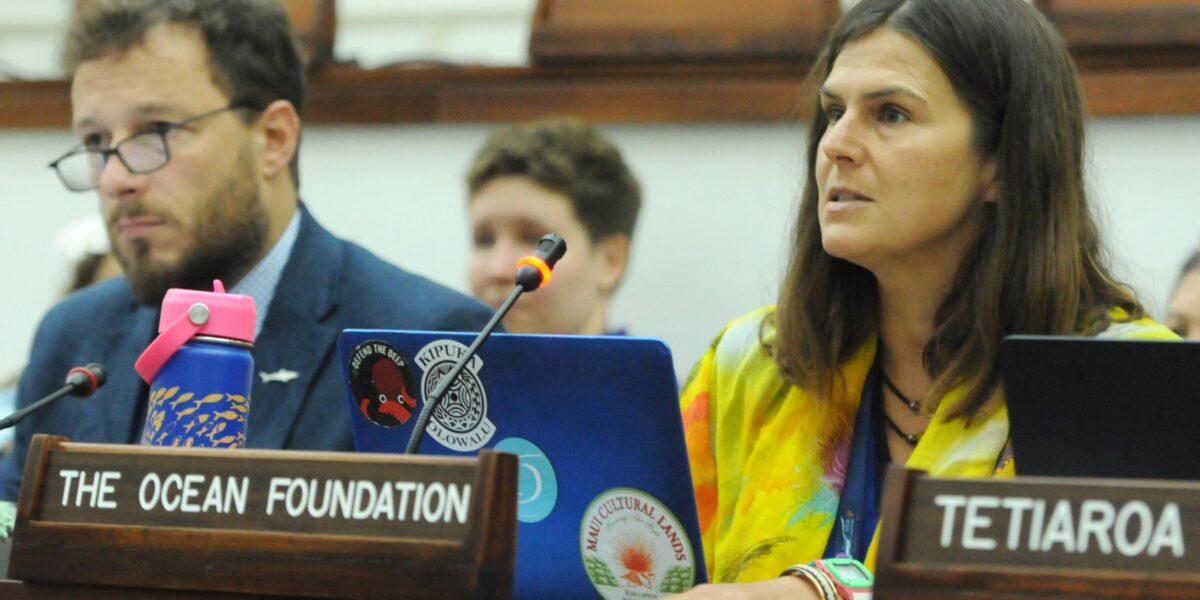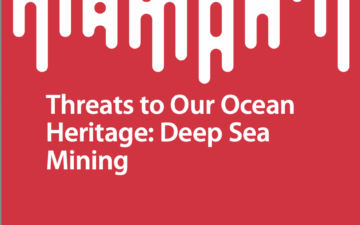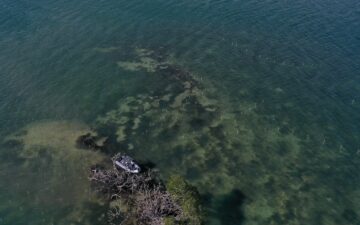The 29th Session of the International Seabed Authority (ISA) continued this month in Kingston, Jamaica, with Council and Assembly meetings. The Ocean Foundation’s Deep Sea Mining lead, Bobbi-Jo Dobush, and Program Manager Madeline Warner joined the conversation on the ground, ensuring that discussions acknowledged both the questionable financial success of such an industry (for more see the 2024 TOF finance brief) and the importance of stakeholder engagement, specifically during conversations around Underwater Cultural Heritage.
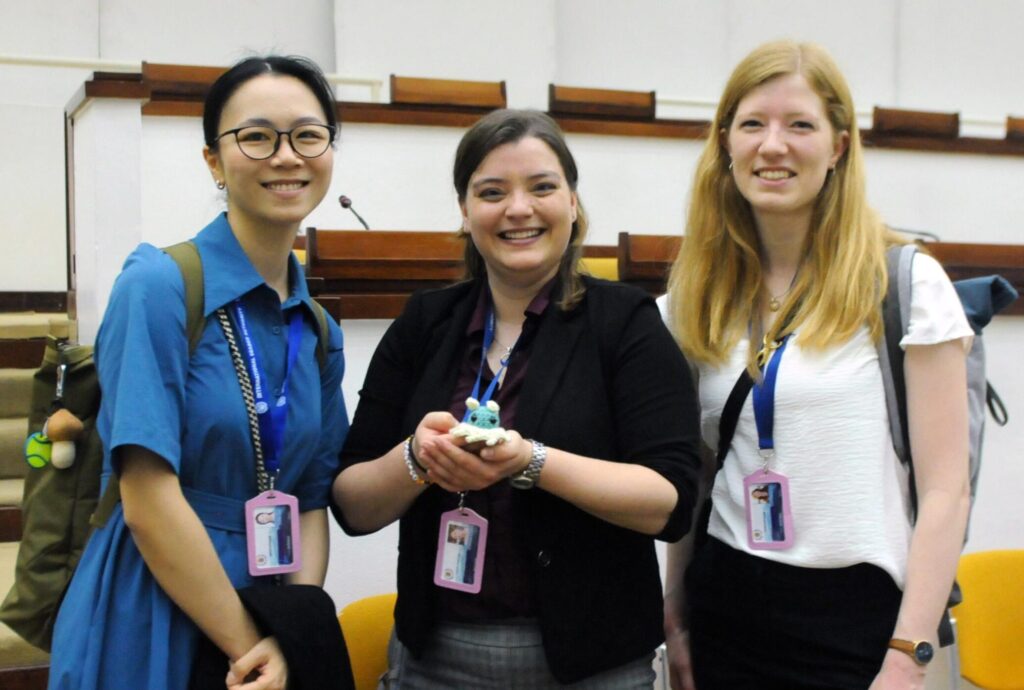
Talk Money to Me
“I look forward to this supreme organ’s deliberation of high-level, gating questions that must inform decision-making about the seabed. One of those high-level questions is – will anyone make money from mining the seabed? If so, who?” — Bobbi-Jo Dobush, The Ocean Foundation
During the second set of two-week meetings this year, the Council continued to discuss the mining rules and regulations, regulation by regulation, line by line. A January 2024 study on the progress of the regulations found that over 30 major issues still remain unresolved, and after two more weeks of negotiations, many have still not been resolved.
The Ocean Foundation stated in session that we are not convinced that mining the seabed would be profitable for anyone and even less so that it would benefit humankind, as intended by the UN Convention on the Law of the Sea. We believe these risks and realities have been downplayed or misrepresented by some seabed mining proponent companies. To that end, The Ocean Foundation – alongside Tetiaroa Society’s Blue Climate Initiative and the Deep Sea Mining Campaign – recently filed a formal complaint with the financial regulatory agency in the United States, the Securities and Exchange Commission.
In collaboration with the Jamaica Environment Trust, an organization that TOF once hosted a Friends of Fund to help it grow and succeed, we continued to raise these questions. TOF’s Madeline Warner presented to a group of 60+ local Jamaicans and NGO representatives about the financial uncertainties and economic questions around deep sea mining and prospective companies.
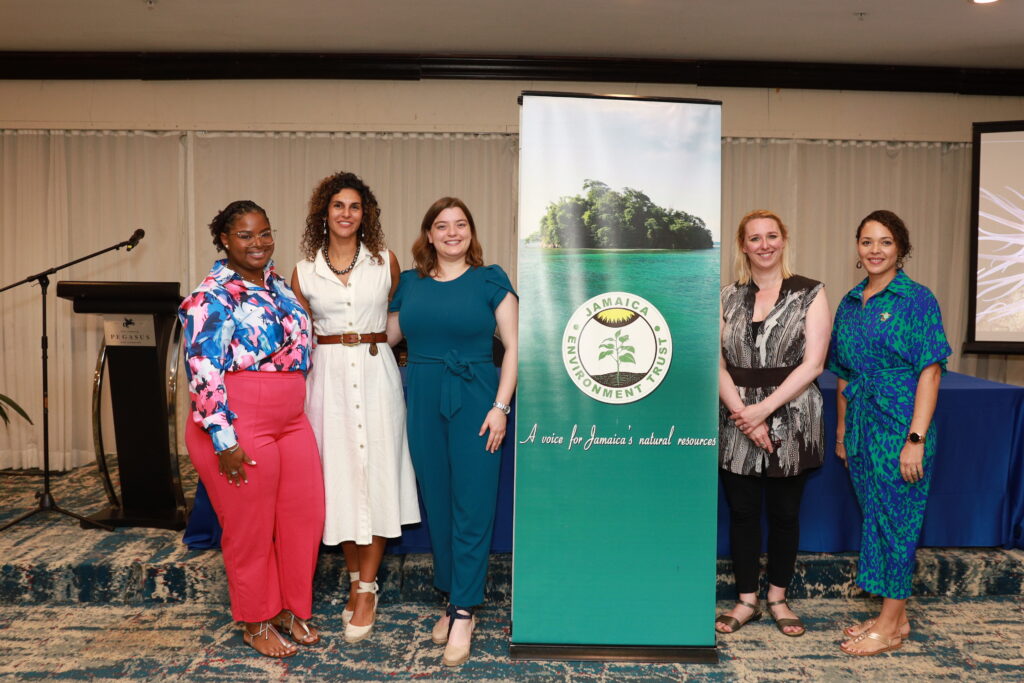
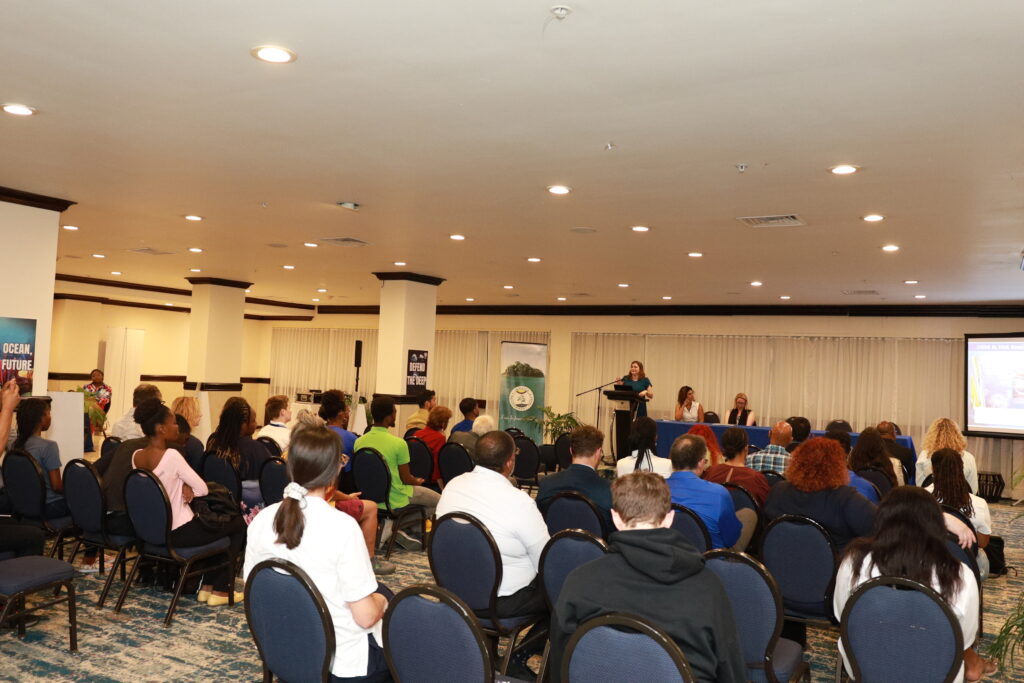
As the Council debated regulations about the insurance required by a prospective mining company, three insurers, Hannover Re, Zurich Insurance Group, and Vienna Insurance Group (VIG), wrote new policies excluding DSM from their protocols. In practice, these insurers will not cover risks or events related to this industry sector, in addition to common exclusions. They have deemed DSM to be too risky to insure profitably, that there’s a lack of reliable data to price the risk accurately, the sector faces regulatory uncertainties or legal challenges, and that the potential losses are too catastrophic or unpredictable.
Culturing the Deep Ocean
“The deep ocean is, and should remain, a sacred place that shouldn’t be desecrated” – Nicole Yamase
Underwater Cultural Heritage remained a hot topic during the Council meetings, with delegations discussing it three separate times to figure out the best way to include it in the regulations. The Ocean Foundation, as the organization that originally brought this issue to the negotiating table, supported Indigenous comments on creating a “committee” on intangible cultural heritage and encouraged delegations to consider proactive protection of this heritage. This Assembly also marks the largest attendance of Indigenous participants on Observer delegations, with over 15 Pacific Islanders joining the meetings.
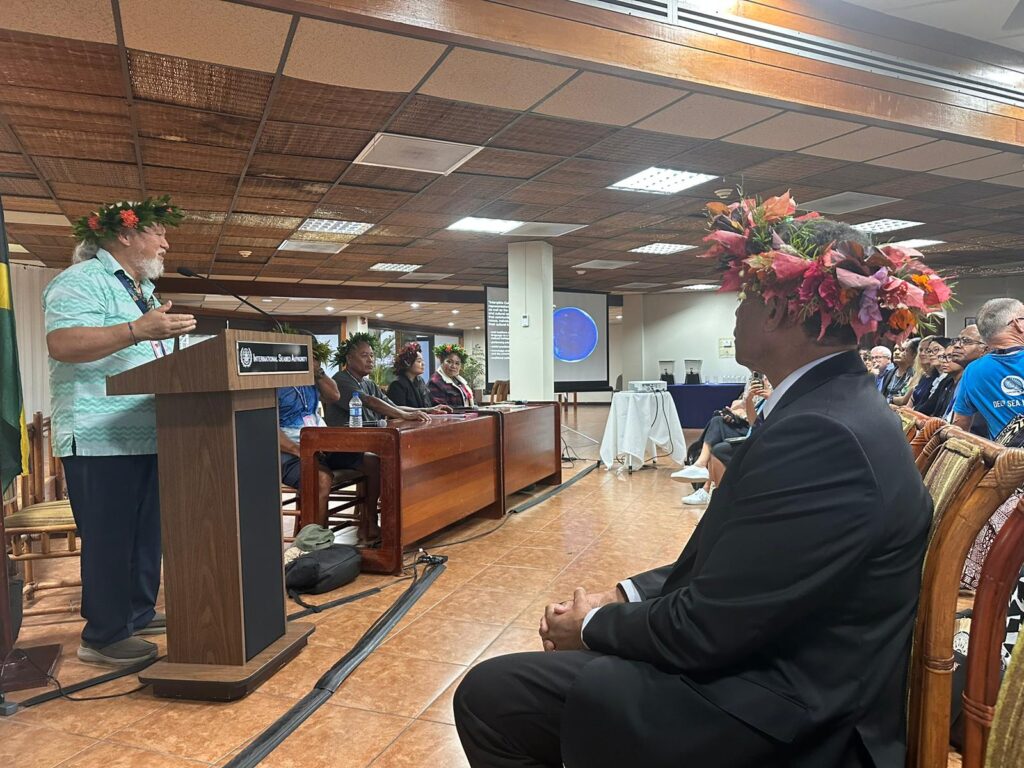
A Future for Our Ocean
Brazilian oceanographer and international diplomat Leticia Carvalho won the election for Secretary General with 70% of the votes, unseating current Secretary General Michael Lodge. This election signals the beginning of change. Ms. Carvahlo has clearly stated that she prioritizes transparency and accountability in an organization that has been consistently criticized for the lack thereof.
Throughout the meetings, five additional countries joined the call for a precautionary approach to deep sea mining. The U.S. territory of American Samoa and Hawaiʻi also implemented legislation regarding deep sea mining in their waters. With a total of 32 countries calling for a precautionary pause, moratorium, or ban on deep sea mining in the 30th anniversary year of the ISA, it’s time for countries to take a hard look at the truth of deep sea mining and take a stand to protect the ocean.
